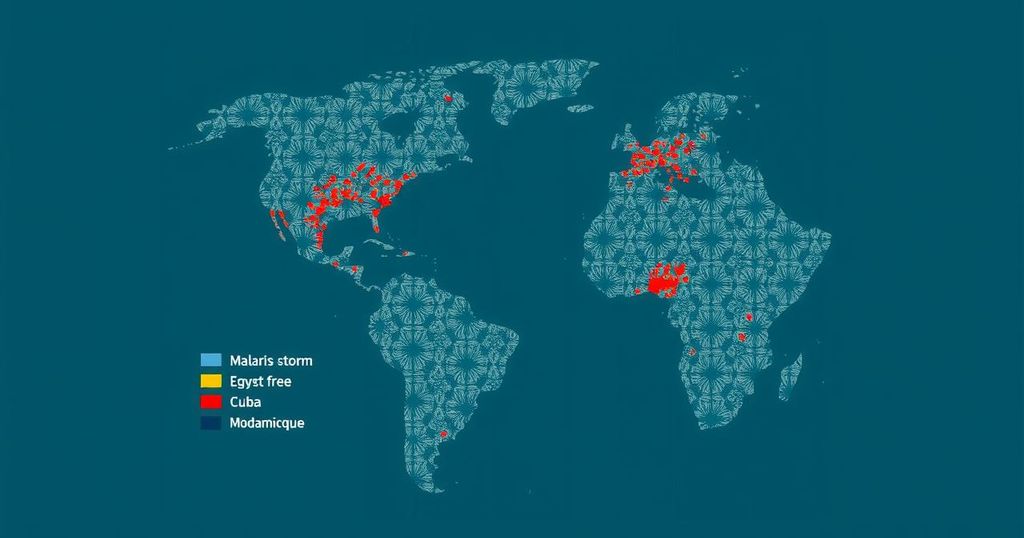Global Health and Humanitarian Update: Egypt’s Malaria-Free Certification and Current Crises in Cuba, Mozambique, and South Sudan
The World Health Organization has declared Egypt malaria-free, marking its success in combating the disease. The UN is prepared to assist Cuba, facing power shortages due to a tropical storm. Meanwhile, political unrest in Mozambique has led to the killing of opposition figures, prompting calls for investigation. The WHO is aiding South Sudan amid severe flooding affecting hundreds of thousands.
The World Health Organization (WHO) has officially recognized Egypt as malaria-free, marking a landmark achievement in the longstanding battle against this disease that has affected the nation since ancient times. “Malaria is as old as Egyptian civilization itself, but the disease that plagued pharaohs now belongs to its history and not its future,” stated Dr. Tedros Adhanom-Ghebreyesus, WHO Director-General. He emphasized this certification as a declaration of tremendous significance and a demonstration of Egypt’s determination to eliminate this ancient scourge. This recognition places Egypt among the third countries in the WHO Eastern Mediterranean region to receive such certification, following the United Arab Emirates and Morocco, and expands the exclusive list of 44 countries and one territory globally that have eradicated malaria. Dr. Tedros further remarked, “I congratulate Egypt on this achievement, which is an inspiration to other countries in the region, and shows what’s possible with the right resources and right tools.” In a different context, the United Nations (UN) has expressed its readiness to assist Cuba amidst a crisis caused by a tropical storm affecting millions who are currently without power due to failures in the electricity grid. The failure is attributed to a combination of infrastructure inadequacies and economic sanctions that limit access to vital resources. UN representatives acknowledged the shipment of technical support as significant rainfall from Tropical Storm Oscar worsens the situation across Cuba. Furthermore, UN Secretary-General António Guterres has called for a thorough investigation into the recent killings of opposition figures in Mozambique, urging for calm as violence threatens to escalate following electoral disputes. Adding to global humanitarian challenges, the WHO is actively supporting South Sudan as it grapples with unprecedented flooding, impacting nearly 890,000 individuals. Approximately 226,000 people have been displaced, with severe complications arising from deteriorating health conditions, including suspected cases of cholera and malaria. The WHO is facilitating the distribution of emergency health supplies to alleviate the worsening crisis.
The key topics addressed in this article are the health achievements of nations in combating malaria, the dire humanitarian impacts of natural disasters, political violence in Mozambique, and international support for countries facing crises. The WHO’s recent certification of Egypt as malaria-free highlights significant public health advancements, while the ongoing crises in Cuba, Mozambique, and South Sudan draw attention to the challenges of natural and political instability affecting local populations.
In summary, this report highlights Egypt’s success in eliminating malaria, showcases the UN’s readiness to assist Cuba amid tropical storm challenges, calls for peace in Mozambique following violent political disputes, and underscores the WHO’s commitment to addressing health crises in South Sudan. These developments illustrate the global landscape of health, governance, and resilience amidst adversity.
Original Source: news.un.org




Post Comment